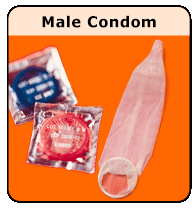- Parents Home
- Para Padres
- A to Z Dictionary
- Allergy Center
- Asthma
- Cancer
- Diabetes
- Diseases & Conditions
- Doctors & Hospitals
- Emotions & Behavior
- First Aid & Safety
- Flu (Influenza)
- Food Allergies
- General Health
- Growth & Development
- Heart Health & Conditions
- Homework Help Center
- Infections
- Newborn Care
- Nutrition & Fitness
- Play & Learn
- Pregnancy Center
- Preventing Premature Birth
- Q&A
- School & Family Life
- Sports Medicine
- Teens Home
- Para Adolescentes
- Asthma
- Be Your Best Self
- Body & Skin Care
- Cancer
- Diabetes
- Diseases & Conditions
- Drugs & Alcohol
- Flu (Influenza)
- Homework Help
- Infections
- Managing Your Weight
- Medical Care 101
- Mental Health
- Nutrition & Fitness
- Q&A
- Safety & First Aid
- School, Jobs, & Friends
- Sexual Health
- Sports Medicine
- Stress & Coping
How to Use a Male Condom
Using condoms correctly, each time you have sex, can help prevent sexually transmitted diseases (STDs) and pregnancy. Follow these steps to keep you and your partner safe.

What Type of Condom Should I Use?
To choose a condom:
- Pick condoms made of latex or polyurethane. Latex is the best at preventing STDs. But if you or your partner is allergic to latex, use polyurethane condoms instead.
- Choose condoms that are comfortable and snug. They should also have a reservoir tip (a small space at the top) to catch semen after ejaculation.
- Check the condom and its wrapper. If there are any tears or defects, or if the condom is expired, don’t use it. Use a new one.
If you use a lubricant, make sure it’s water-based or silicone-based. Other types can break down the condom.
How Do I Put On a Condom?
To make sure that the condom doesn’t tear and fits snugly:
- Open the condom packet carefully with your hands, not your teeth. Avoid ripping the condom.
- Put the condom on before having sex and when the penis is erect. Lightly pinch the top of the condom and place it at the tip of the penis. This gets rid of trapped air, which can cause a condom to burst. If the person who will wear the condom is uncircumcised, pull back the foreskin on the penis before putting on the condom.
- Roll down the condom to the base of the penis. If the condom is inside out, throw it away and use a new one.
After sex, prevent the condom from slipping off. To do this, the person wearing the condom should withdraw while holding it at the base of the penis. Then remove the condom and put it in the trash.
What Else Should I Know?
When storing condoms, keep them away from heat and light. These can make them more likely to tear. Also, don’t keep condoms in your wallet, where they can get folded and worn down.
For added protection against pregnancy, use condoms with a second method of birth control, like birth control pills.
Your doctor or pharmacist can answer questions on how to use condoms or other birth control. You can also go to a health clinic like Planned Parenthood.